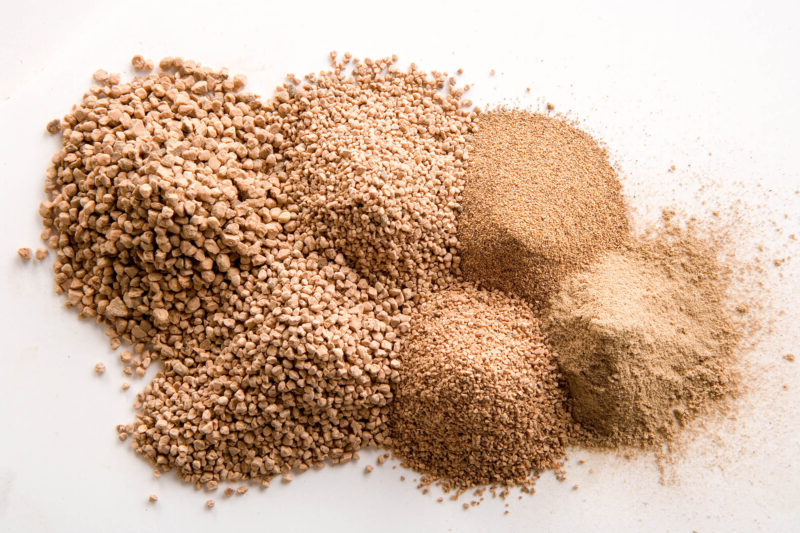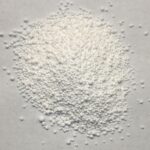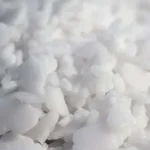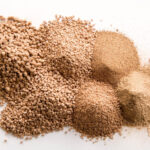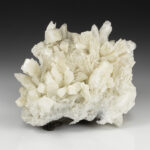What is Walnut Shell? Properties, Uses & Industrial Benefits
Walnut shell, often overlooked outside of agriculture, plays a vital role in various industries thanks to its unique combination of strength, eco-friendliness, and versatility. Derived from the hard outer shell of walnuts, this natural material is processed into fine powders or coarse grits and used in everything from abrasive blasting and oil drilling to cosmetics and filtration. As industries move toward sustainable solutions, walnut shell stands out as a biodegradable, reusable, and efficient material that delivers both performance and environmental benefits.
Whether you’re in construction, energy, personal care, or environmental engineering, understanding the value and versatility of walnut shell can help optimize your processes while reducing environmental impact.
What is Walnut Shell?
Walnut shell is a natural, biodegradable, and highly durable material derived from the hard outer shell of walnuts. Once ground into various mesh sizes, it serves as a versatile abrasive, filler, and filtration media across multiple industries. Unlike synthetic or mineral-based alternatives, walnut shells offer an eco-friendly solution with minimal environmental impact.
🌰 Key Characteristics of Walnut Shell
-
Hard yet soft on surfaces – Mohs hardness of 3.5–4.0 makes it abrasive enough for cleaning but gentle enough not to damage underlying surfaces.
-
Non-toxic & biodegradable – Safe for the environment and workers.
-
Lightweight & reusable – Often used multiple times in blasting or filtration systems.
-
Customizable mesh sizes – From coarse to fine powders depending on industrial use.
🏭 Common Applications of Walnut Shell
1. Abrasive Blasting
Used to clean metals, remove paint, or polish surfaces without damaging them. Common in aerospace, automotive, and ship maintenance industries.
Crushed walnut shells are often used as a natural and biodegradable alternative to traditional abrasives like sand or glass beads. Walnut shell abrasives are gentle yet effective in removing coatings, paint, rust, and other contaminants from metal surfaces without causing damage or leaving behind residue. They are commonly used in industries such as automotive, aerospace, and marine for cleaning, deburring, and surface preparation.
2. Cosmetics & Personal Care
Walnut shells are also used as a natural exfoliant in the cosmetic and personal care industry. The finely ground walnut shell powder is added to facial scrubs, body scrubs, and exfoliating cleansers to gently remove dead skin cells and impurities, leaving the skin smooth and refreshed. The irregular shape of walnut shell particles helps to provide gentle scrubbing action without causing micro-tears on the skin.
3. Agricultural Industry
In the agricultural industry, crushed walnut shells are used as a bedding material for various animals, including poultry, small animals, and reptiles. The shells provide a comfortable and absorbent bedding that helps to control odor and moisture. Walnut shells are also used as a natural mulch in gardening and landscaping to suppress weed growth, retain soil moisture, and provide insulation for plant roots.
4. Filtration Media
Utilized in water and wastewater treatment plants to filter contaminants without breaking down like other organic filters.
Furthermore, walnut shells have been utilized in the production of activated carbon. The shells are carbonized and then activated to create a highly porous material with a large surface area. Activated carbon made from walnut shells is commonly used for water and air purification, as well as in gas masks and respirators to filter out harmful contaminants.
5. Filler in Resins & Plastics
Acts as a natural filler in plastics, adhesives, rubber, and sealants for improved durability and eco-conscious production.
6. Oil & Gas Drilling
Serves as a lost circulation material (LCM) in drilling muds to prevent fluid loss in porous formations.
Apart from these applications, walnut shells can also be used in crafts, as decorative fillers, and in the production of biofuels. The shells are a renewable resource and their utilization in various industries helps to reduce waste and promote sustainability.
It’s important to note that individuals with nut allergies should avoid products containing walnut shells, as they may cause allergic reactions. Additionally, proper safety precautions should be followed when handling or working with walnut shell abrasives to protect against dust inhalation.
✅ Benefits of Using Walnut Shell
-
Gentle yet effective cleaning
-
Recyclable and cost-efficient
-
Environmentally sustainable
-
Safe for use on sensitive materials
-
Chemically inert and moisture-resistant
📦 Why Choose Walnut Shell from Pars Universal Bitumen?
At Pars Universal Bitumen, we provide premium-quality walnut shell products tailored to meet the needs of a wide range of industries. Our advantages include:
-
🌟 High Purity: Carefully processed for maximum consistency and low dust content
-
🏭 Custom Mesh Sizes: From coarse grit to ultra-fine powder
-
📦 Flexible Packaging Options: Bags, bulk, or custom packaging to match your project scale
-
🌍 Global Delivery: Fast and reliable logistics for international customers
-
💼 Industrial Expertise: Guidance and technical support for your specific application
Let us help you choose the right grade and quantity for optimal performance and value.
❓FAQs About Walnut Shell
1. Is walnut shell safe for industrial and cosmetic use?
Yes, it’s non-toxic, biodegradable, and does not pose health risks when used properly. It’s even approved for cosmetic formulations like scrubs and exfoliants.
2. Can walnut shell be reused?
Absolutely. In applications like blasting and filtration, walnut shells can be cleaned and reused several times, making them economical and sustainable.
3. What mesh sizes are available?
Pars Universal Bitumen offers walnut shell in a wide range of mesh sizes, including 6–10, 12–20, 20–40, 40–60, and finer grades depending on your industry and application.
4. Does walnut shell damage delicate surfaces?
No. Unlike harsher abrasives like sand or steel shot, walnut shell is gentle enough for delicate metals, composites, and even wood surfaces.
5. How is walnut shell packaged and shipped?
We offer standard 25kg or 50lb bags, bulk shipments in jumbo bags, or custom packaging on request. Global delivery options are available with timely logistics support.
🏁 Conclusion
Walnut shell is more than just an agricultural byproduct—it’s a powerful, eco-friendly solution used across industries for abrasive cleaning, oil well drilling, cosmetics, filtration, and beyond. Its natural hardness, biodegradability, and non-toxic profile make it a preferred alternative to synthetic materials and harsher abrasives. As industries increasingly adopt sustainable and cost-effective practices, walnut shell continues to prove its value as a reliable and efficient material.
Whether you’re looking to improve performance in industrial applications or seeking environmentally conscious alternatives, walnut shell offers a smart and scalable solution.
📞 Contact Pars Universal Bitumen Today!
Looking for a high-quality, eco-friendly walnut shell solution for your industrial or commercial needs?
📧 Email: [email protected]
📞 Phone: +971 4 878 2031
🌐 Visit: Pub-ltd
👉 Request a Free Quote Now – Consistent Supply, Industrial Grade Quality, Global Shipping!
If you have any questions or need technical guidance, don’t hesitate to contact us. Our experts are ready to help!

